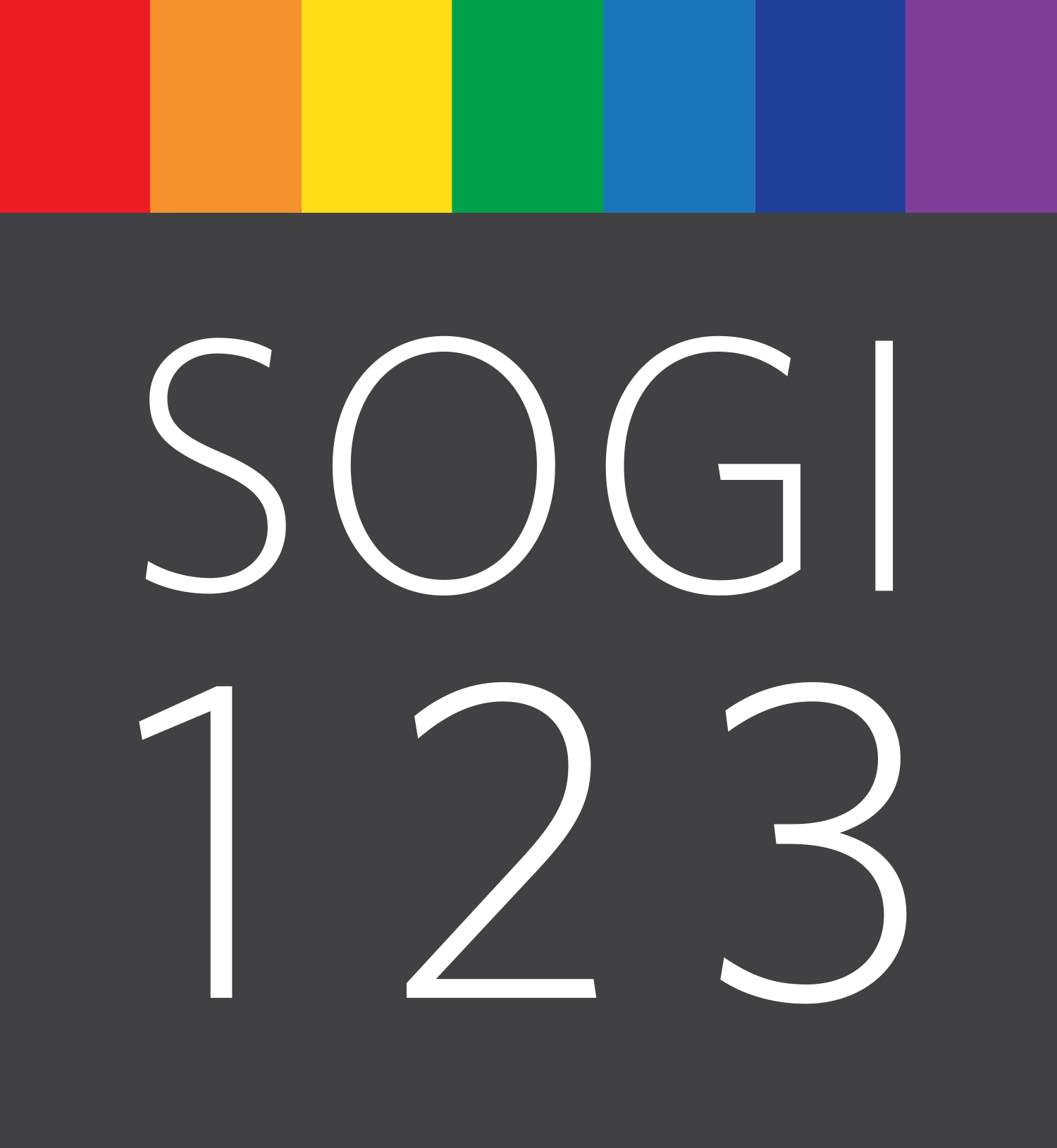
Videos from the BC Ministry of Education
The following videos were produced and compiled by the BC Ministry of Education to share educator insights into the development of SOGI-inclusive policies and procedures. They were recorded at the SOGI Policy Summit held in Richmond, BC, in October 2016, where superintendents and district leadership from across the province convened to share their best practices and lessons learned.
Best Practices Videos
for some of the 10 key policy components

No. 1 / Common Language
Introducing common language through policy and procedures is important to establish clarity. Using respectful SOGI terminology can foster shared understanding among students, educators and parents, and support greater collaboration in creating SOGI inclusive school environments.
Community organizations are a helpful source of information and support for identifying inclusive language.
No. 2 / Safety and Anti-harassment
There is no one-size-fits-all approach to SOGI-inclusive policies. Some schools/districts choose to adopt stand-alone SOGI policies, whereas others include SOGI in their Discrimination and Harassment/Anti-Bullying Policy and develop comprehensive SOGI procedures. Each district SOGI policy or procedure should include basic components necessary to keep sexual and gender minority students safe, respected and included.
No. 5 / Dress Guidelines
The goal of developing inclusive dress guidelines is to encourage students to express themselves as individuals. Dress codes should be gender neutral and move away from male and female (binary) descriptors.
When developing or revising dress guidelines, bring students into the process to increase their engagement and ownership of the final policy.
No. 6 / Gender Integrated and Inclusive Activities
All students should have the opportunity to participate in classroom and extra-curricular activities, regardless of their sexual orientation and gender identity. Schoolsand school districts can also support groups that promote social responsibility and inclusion, such as Gay Straight Alliances or Gender Sexuality Alliances (GSAs).
Sports related activities and teams are more likely to be gendered and can be good places to start a conversation about inclusion.
No. 7 / Educator Training
Educators consistently identify a lack of training and resources as being one of the biggest barriers to implementing SOGI education.
Effective training incorporates implementation of policy and procedures to create inclusive environments and enables educators to integrate SOGI into the curriculum at all grade levels.
No. 8 / Inclusive Learning
It is important that all students see themselves reflected in the curriculum regardless of their sexual orientation or gender identity.
There are a variety of age-appropriate ways to integrate SOGI into the curriculum in all grade levels.
No. 9 / Facilities
Many LGBTQ students identify washrooms and change rooms as being unsafe places in the school setting.
Students may choose to use facilities that correspond to their gender identity.
Designating gender neutral facilities helps to foster emotional wellbeing, promote student safety and demonstrate SOGI inclusive best practices.
Lessons Learned Videos
what educators would do differently and where they found success

LESSONS LEARNED: District and School Roles
Educators reflect on the roles districts and schools play when it comes to SOGI.
LESSONS LEARNED: District Challenges
Educators share challenges they have faced within their district when implementing SOGI policies and curriculum points.
LESSONS LEARNED: Student Safety as Common Ground
Educators discuss using student safety as common ground for implementing SOGI policies.
LESSONS LEARNED: Teachable Moments
Educators share their thoughts on why we should share the challenges and successes we have.
LESSONS LEARNED: District Successes
Educators share their successes and what made them work.
LESSONS LEARNED: District Reflections
Educators share their reflections on making their districts and schools more SOGI inclusive.
